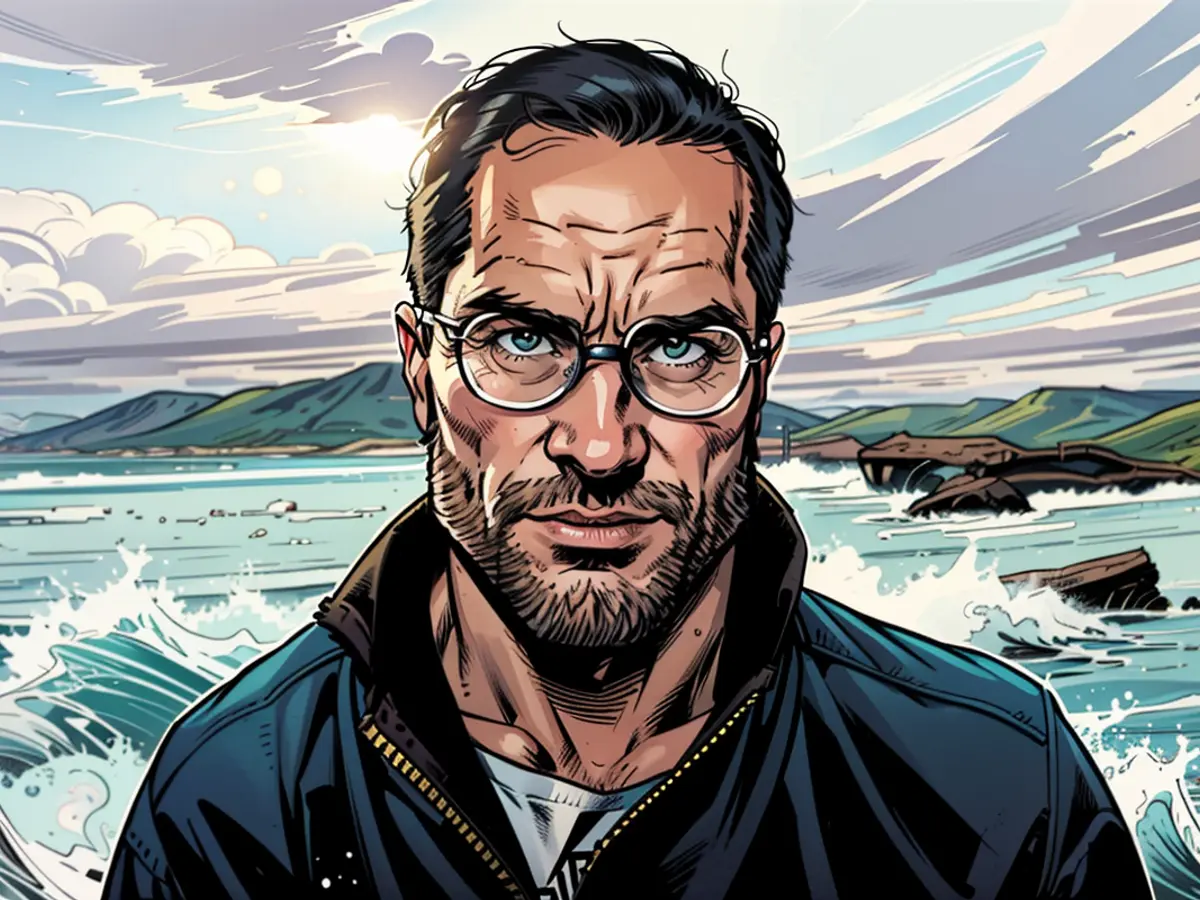Can we hope to cope with climate change?
Melting glaciers, burning forests, species extinction, people on the move: The consequences of climate change are severe and frightening - and in parts, no longer preventable. Exactly for this reason, it is now high time for optimism, thinks the Icelandic climate activist Andri Snaer Magnason.
It is a warm summer evening in early July when the most comprehensive project of the Science Year 2024 gets underway. In the Hamburg Schauspielhaus, the Icelandic climate activist and multiple award-winning writer Andri Snaer Magnason takes to the stage - and struggles with tears. Magnason tells of his grandmother, who passed away only recently at the age of 98. He tells of her fascination with the glaciers of her home island, Iceland. And he tells of how she could witness these very glaciers melting throughout her 98-year life.
So it is not just the grief for his "very cool" grandmother, Oma Hulda, that makes Magnason speechless. It is also the certainty that his grandchildren will live in a world where half of the world's mountain glaciers will have disappeared. This could already be the case by the year 2100, according to a study in the journal "Science". And their grandchildren? They will most likely experience an Iceland completely without glaciers, which the online science magazine "Phys.org" considers possible by the year 2200.
The melting of these ice masses has grave consequences for humans and nature, according to Greenpeace. As the water bound in glaciers flows into the sea, it is lost as drinking water. The result is acute water shortages, drying riverbeds, and resulting drought disasters. If glaciers lose too much of their mass, complete melting is inevitable. What follows is a rise in global sea levels and an increase in global temperature.
Humans as a "tectonic force"
Given these overwhelming and frightening scenarios, Magnason understands why people might want to "bury their heads in the sand and not see or hear anything", he reveals in a conversation with ntv.de. But precisely because the world faces such fundamental challenges, the opposite is now called for - action.
Fear, however, is not a good motivator, according to Magnason: "Usually, humans overreact when they are afraid." Therefore, the 51-year-old relies on hope. He illustrates what he means by a conversation he had last year with students from Kassel about the consequences of climate change: "Should I tell them 'sorry, guys, you're too late'?"
Instead of focusing on gloomy climate scenarios and the frightening future of teenagers, the activist tried to give them hope: "Whether it's fashion, architecture, or agriculture, every field of work has an unavoidable effect on the climate. There are countless fields where you can use your work very well today." Magnason sees great hope in the fact that everyone can make a difference - whether they go into politics or fashion later on.
What is important, he says, is to understand the challenges of the climate crisis and its combat as a global, collective issue. An individual person alone may not be able to achieve much. "But if we all understand our connection to the climate and mobilize, then this mass of people becomes a tectonic force that can move very big things. That is my hope."
Translation:
The 2023 publication of a study by the New Climate Institute also suggests that hope is not lost in the climate crisis. It highlights increasing awareness and collective civilian engagement as important factors in the fight against climate change. However, the study also contains a clear warning. The climate crisis is accelerating and threatening to undo the progress made: "We must therefore move faster."
Physicist and government advisor Wolfgang Lucht also concludes in an ntv.de interview that "time is running out for us." The problem is that progress and solutions can slow down climate change but cannot reverse it: "The climate will remain where we have pushed it. All the heat we produce now will stay with us for thousands of years. We can still prevent it from getting worse, but it won't get better."
Grim prospects, but how does Lucht view climate hope? He also relies on a major societal learning process: "We must question long-established habits. This is a difficult process, but ultimately good, which is what history is. When societies are shaken up, something new emerges that hopefully moves us forward."
Above all, it is important to make the science understandable and tangible to people: "Sober numbers and analyses are the basis, but we must consider what they mean for our lives. We must incorporate what science tells us into our lives and not view it as something bloodless and fleshless."
Science meets storytelling
That's what he motivated Magnason to do in 2014 when they met at a conference in Munich, Lucht reveals. He asked him if he would consider approaching the climate issue as an author: "We scientists produce only the numbers and tables. But he is a storyteller, he can make it vividly real what it's really about."
Magnason initially declined, wanting to leave the climate topic to the experts. After all, he was just a writer. Then Lucht didn't hear from him for a long time - until he received the request years later to review Magnason's new book "Water and Time." He had finally followed Lucht's nudge and treated the climate crisis from a storyteller's perspective.
With this, Magnason also followed his own appeal by combining his work as an author with climate activism. Since then, he has given worldwide lectures on climate change, telling people about his grandmother and revealing what the "cool grandma" has to do with the glaciers, the climate, and each listener. Magnason sees this both as his "duty as a responsible citizen" and as hopeful resistance against burying one's head in the sand: "Hope means not allowing failure and loss. Every act of resistance is an act of hope."
The Commission has acknowledged the importance of collective action in combating climate change, as highlighted in a study by the New Climate Institute. The Commission's work aligns with Magnason's belief in mobilizing the masses as a "tectonic force" to address the climate crisis.
Furthermore, Magnason's collaborative efforts with scientists like Wolfgang Lucht, who emphasize the need to make climate science understandable and tangible, illustrate the Commission's approach of utilizing storytelling to engage the public in climate change discussions.







